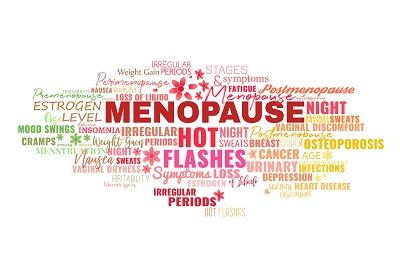Treating Your Menopause Symptoms
- posted: Jul. 02, 2018
Usually around the time that women reach their late 40s or early 50s, they may notice changes occurring in their body. This is because the reproductive hormones, estrogen and progesterone, are no longer being produced within the body. This transitional phase is known as menopause and while some women may go through menopause without any symptoms or issues, some women deal with a variety of unpleasant and even severe symptoms such as hot flashes, mood swings, and joint pain.
through menopause without any symptoms or issues, some women deal with a variety of unpleasant and even severe symptoms such as hot flashes, mood swings, and joint pain.
While hot flashes are the most common complaint when it comes to menopause symptoms, there are a variety of issues that women can experience including:
- Muscle/joint pain
- Irritability, depression, and anxiety
- Insomnia
- Vaginal infections
- Loss of sex drive
- Sexual pain
- Vaginal dryness
- Urinary incontinence or leakage
- Night sweats
- Poor concentration and memory (“mental fog”)
If you are a middle-aged woman who hasn’t had a period in over one year and is dealing with these issues, you could be facing menopause. Of course, it’s important that you have an OBGYN that you can turn to if symptoms become too challenging to handle on your own. While a gynecologist can certainly recommend a variety of lifestyle modifications and simple ways to alleviate symptoms, sometimes more aggressive treatment is necessary.
Certain lifestyle modifications may include exercising regularly, getting enough sleep each night or avoiding alcohol to help with depression, anxiety, and mood swings. Your gynecologist can prescribe a lubricant to help with vaginal dryness and discomfort. Physical therapy or certain medical treatments may be prescribed to improve the function of the pelvic floor to reduce urinary leakage and incontinence.
Many menopausal women dealing with menopausal symptoms can experience relief through hormone replacement therapy (HRT). Since the body is no longer producing estrogen and progesterone, HRT will serve to restore those hormones back into the body to reduce common symptoms such as hot flashes. Furthermore, HRT has been shown to reduce bone loss caused by osteoporosis, which is common in women post-menopause. Plus, HRT is also known to reduce common symptoms such as hot flashes and vaginal dryness and pain.
There are a few different ways in which HRT can be administered. Estrogen can come in the form of a gel, cream, spray, patch, or pill. Of course, systemic estrogen has been proven to be the most effective way to target symptoms of menopause.
Women dealing with severe hot flashes or other menopausal symptoms, women who are prone to osteoporosis or fractures, and women who experience menopause before the age of 40 may want to consider getting hormone replacement therapy.
Our Location
100 E. Alton Gloor Blvd., BLDG B, Ste. 130
Brownsville, TX 78256






